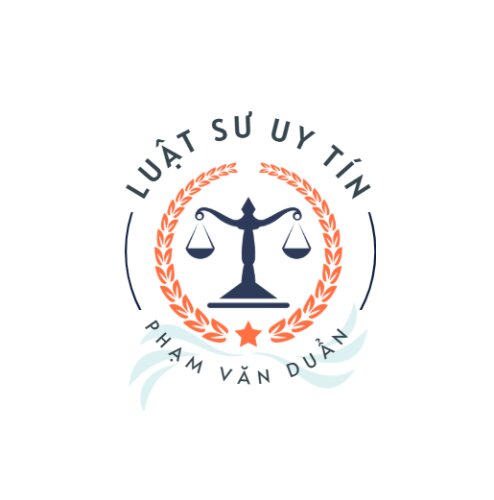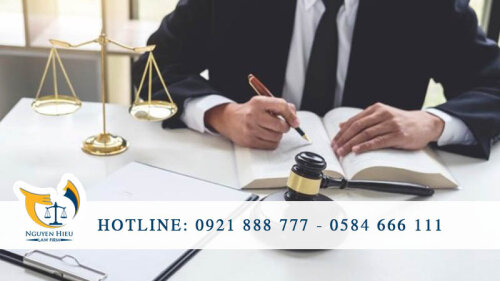Best Child Custody Lawyers in Dong Nai
Share your needs with us, get contacted by law firms.
Free. Takes 2 min.
Free Guide to Hiring a Family Lawyer
List of the best lawyers in Dong Nai, Vietnam
About Child Custody Law in Dong Nai, Vietnam
Child custody is a legal issue that often arises when parents divorce, separate, or are otherwise unable to continue co-parenting in the same household. In Dong Nai, Vietnam, child custody is governed primarily by the Law on Marriage and Family. The law puts the best interests of the child above all else, aiming to protect their physical, emotional, and educational well-being. Courts in Dong Nai consider various factors to decide which parent, or whether both parents jointly, should have custody of the child. Custody arrangements must also outline rights and obligations regarding the care, rearing, and education of the child, as well as visitation and financial support.
Why You May Need a Lawyer
Child custody matters can be complex and emotionally challenging. Legal representation ensures your rights and the interests of your child are safeguarded. You may need a lawyer in situations such as:
- Divorce or separation where parents cannot agree on a custody arrangement
- Concerns about child safety, including cases of domestic violence or neglect
- Seeking changes to an existing custody order due to major life changes like relocation
- One parent attempting to deny the other reasonable visitation
- Cases where parental rights are disputed or where third parties, like grandparents, seek custody
- Clarifying complex legal rights and obligations regarding child support, visitation, and education
Legal professionals in Dong Nai have in-depth understanding of local and national laws and can guide you through relevant court processes, ensuring all necessary documentation is properly prepared.
Local Laws Overview
Child custody in Dong Nai, like elsewhere in Vietnam, follows the guidelines of the 2014 Law on Marriage and Family. The key principles include:
- Child's Best Interests: The child's physical, mental, and emotional needs take priority over all other considerations.
- Types of Custody: Dong Nai courts may grant custody exclusively to one parent or allow joint custody, depending on the situation and the child's interests.
- Child's Wishes: For children over seven years old, the court often takes the child’s wishes into account when determining custody.
- Financial Support: The non-custodial parent may be required to provide child support, contributing to the child's living and educational needs.
- Visitation Rights: Legal arrangements are made for the non-custodial parent to maintain regular and healthy contact with the child.
- Modification of Custody: Custody orders can be changed if circumstances significantly change, impacting the child's welfare.
- Role of Social Agencies: Dong Nai’s social protection agencies may become involved in disputes or investigations, especially in cases of alleged abuse or neglect.
These laws aim to balance parental rights with child welfare, and court procedures ensure both parents have a chance to present their cases.
Frequently Asked Questions
What does "child custody" mean in Dong Nai, Vietnam?
Child custody refers to the responsibility and rights of a parent or guardian to care for, raise, and make decisions for a child after separation, divorce, or if parents are unable to live together.
How is custody usually determined by the court?
The court considers the child's best interests, each parent’s circumstances, the child's wishes (if over seven), the relationship between child and parents, living conditions, education, and any evidence affecting the child's safety and well-being.
Can a child choose which parent to live with?
The wishes of children aged seven and above are usually considered, but the final decision always depends on the child's best interests as assessed by the court.
Do both parents have equal rights to custody?
Yes, the law presumes both parents have equal rights and responsibilities towards their children. The court will not favor one parent unless it clearly benefits the child.
What if one parent wants to move with the child to another area or country?
Major relocations require consent from the other parent or court approval, especially if it affects the other parent's visitation rights or the child’s well-being. The court will evaluate the impact on the child.
Can grandparents or other relatives get custody?
In certain cases, if neither parent is suitable for custody due to incapacity, addiction, or abuse, the court may grant custody to another close relative if it serves the child’s best interests.
Is child support mandatory after custody is decided?
Yes, the non-custodial parent is generally required to pay financial support for the child's upbringing, based on their income and the child's needs.
What happens if a parent violates a custody or visitation order?
A parent who fails to comply with a court order may face legal penalties, including fines or enforcement actions, to ensure compliance with custody and visitation rights.
Can custody arrangements be changed later?
Yes, custody orders are not permanent. If circumstances change significantly, either parent can request the court to review and modify the existing arrangement.
What should I do if I believe my child is in danger?
If you suspect abuse, neglect, or imminent harm to your child, contact the police or local child protection authorities immediately, and seek an urgent court intervention.
Additional Resources
People seeking child custody guidance can benefit from these local and national agencies:
- The Justice Department of Dong Nai Province - for general legal advice and documentation support
- The People’s Court of Dong Nai Province - for filing and managing custody cases
- The Department of Labor, Invalids and Social Affairs (DOLISA) Dong Nai - for child protection services
- Vietnam Women’s Union - offers counseling and legal support, especially for women and children
- Local bar associations and private law firms specializing in family law
Next Steps
If you need assistance with a child custody matter in Dong Nai, consider the following:
- Consult with a family law lawyer to understand your rights and options
- Gather relevant documents, including marriage certificates, birth certificates, proof of income, and evidence related to the child's welfare
- Attempt to resolve disputes amicably, when possible, as consensus can benefit the child's emotional health
- If agreement is not possible, prepare to file a case with the People’s Court in Dong Nai, following your lawyer’s guidance
- Stay informed about your obligations under the law, particularly regarding child support and visitation
- Do not hesitate to involve social protection agencies if concerns about child safety arise
Acting promptly and seeking qualified legal support ensures your rights and your child’s best interests are protected throughout the process.
Lawzana helps you find the best lawyers and law firms in Dong Nai through a curated and pre-screened list of qualified legal professionals. Our platform offers rankings and detailed profiles of attorneys and law firms, allowing you to compare based on practice areas, including Child Custody, experience, and client feedback.
Each profile includes a description of the firm's areas of practice, client reviews, team members and partners, year of establishment, spoken languages, office locations, contact information, social media presence, and any published articles or resources. Most firms on our platform speak English and are experienced in both local and international legal matters.
Get a quote from top-rated law firms in Dong Nai, Vietnam — quickly, securely, and without unnecessary hassle.
Disclaimer:
The information provided on this page is for general informational purposes only and does not constitute legal advice. While we strive to ensure the accuracy and relevance of the content, legal information may change over time, and interpretations of the law can vary. You should always consult with a qualified legal professional for advice specific to your situation.
We disclaim all liability for actions taken or not taken based on the content of this page. If you believe any information is incorrect or outdated, please contact us, and we will review and update it where appropriate.










